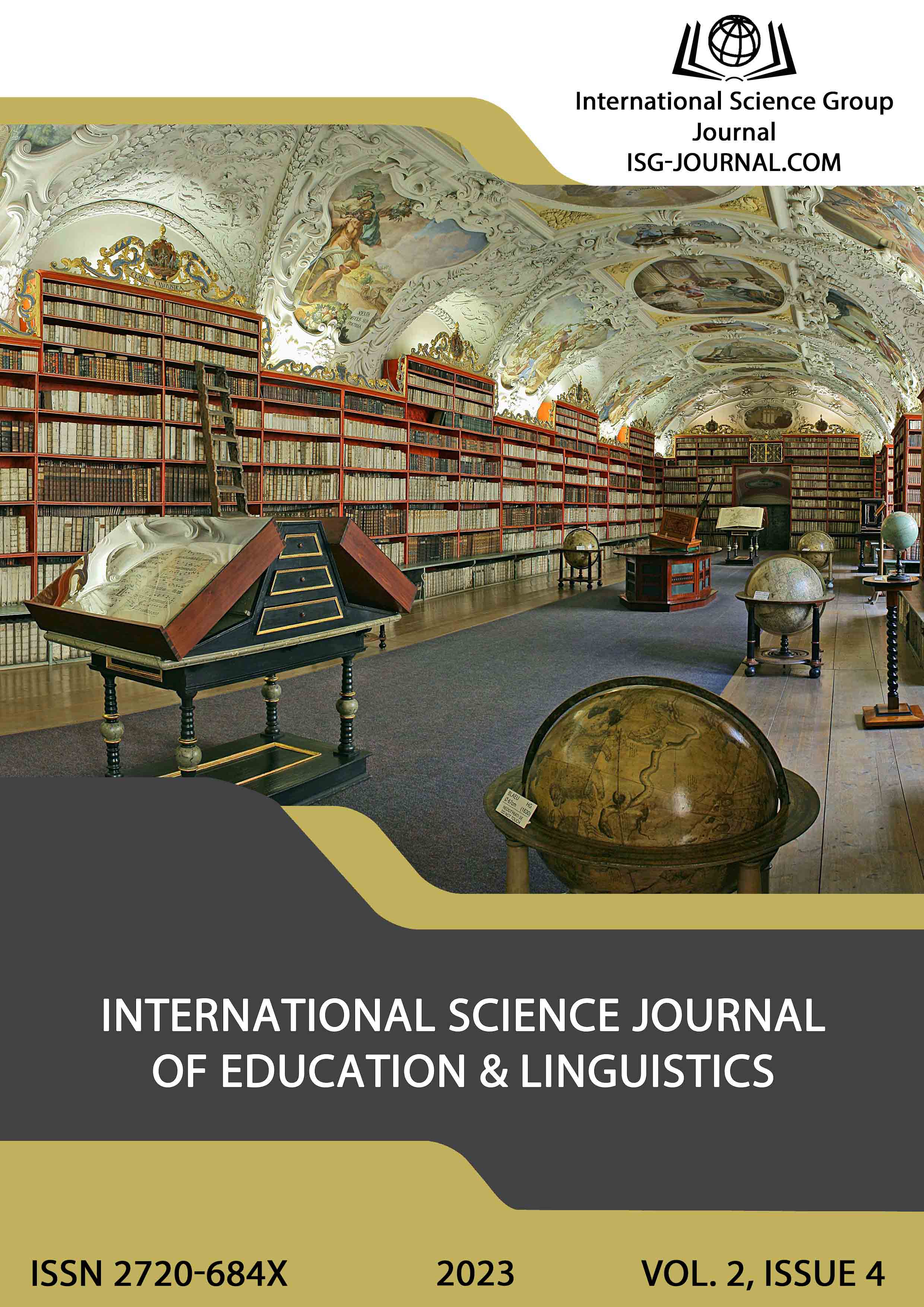Male proverbs as a means of reflecting the linguistic picture of the world
DOI:
https://doi.org/10.46299/j.isjel.20230204.07Keywords:
appearance, world view, paremia, proverb, character traits, stereotype, manAbstract
The article explores the role of male proverbs in reflecting the linguistic picture of the world and their influence on culture and society. The article analyses different perspectives, such as the gender aspect, cultural context, linguistic features and social context. The paper considers the concept of «proverb» and provides the meaning of this term in the language. The term «mentality» was also investigated, as any nation has its own mentality, which is formed through stereotypical ideas about the character and habits of the people. The national mentality is a system of ideas of a social group of people, a reproduction of the common experience of previous generations. The key words in defining the mentality are subconscious stereotypes and a picture of the world, and a stereotype is an image of reality that functions in the public consciousness, simplified and valuable, based on knowledge about the world, but established through traditions and not changing. Today, gender studies occupy a leading position in linguistics. A new science of gender studies is emerging that covers a wide range of issues and areas directly related to gender, with gender linguistics as the leading field, which aims to study the relationship between the concepts of language and gender. Gender studies focuses on the social and cultural factors that determine society's attitudes towards men and women. In terms of new linguistic concepts, the main function of language is to orientate an individual in his or her own cognitive sphere. Thus, language is seen as a system of oriented behavior in a particular situation that a person faces on a daily basis. The article focuses on a detailed analysis of male stereotypes, which showed that appearance is not as important for men as it is for women. The assumption is that any man, even the most ordinary-looking, can always find a wife and will never be alone. For men, such character traits as courage, hard work, bravery, and courage are important. However, proverbs have been found and analyzed that do not indicate the best qualities of men, such as selfishness and a tendency to quarrel. At the same time, in both English and Ukrainian cultures, the male half of the population believes that they are always right in everything.
References
Пазяк М. Українські прислів’я та приказки: проблеми пареміології та пареміографії. Київ, 1984. 203 с.
Smith W. G. The Oxford Dictionary of English Proverbs. Oxford, 1980. 930 p.
Бессонова О. Л. Порівняльний опис гендерних концептів у структурі ціннісної картини світу в англійській та українських мовах. Вісн. СумДУ. 2002. №4. С. 14–15.
Walker C. Scottish Proverbs. Glasgow, 2000. 335 p.
Tannen D. You Just Don’t Understand: Women and Men in Conversation. New York, 1991. 243 p.
Fausto-Sterling A. Myths of gender: biological theories about women and men. New York, 1992. 310 p.
Baron-Cohen S. The essential difference: men, women and the extreme male brain. London, 2003. 263 p.
Мишанич С., Пазяк М. Українські народні прислів’я та приказки. Київ, 1984. 390 с.
Stevenson B. The Home Book of Proverbs, Maxims and Familiar Phrases. London, 1987. 2976 р.
Walker C. Scottish Proverbs. Glasgow, 2000. 335 p.
Багмет А. Збірка українських прислів’їв та приказок. Київ, 2002. 211 с.
Speake J. The Oxford Dictionary of English Proverbs. Oxford, 2007. 625 p.
Номис М. Українські прислів’я, приказки і таке інше. Київ, 1993. 768 с.
Бобкова В., Лавров Ф. Українські народні прислів’я та приказки. Київ, 1955. 446 с.
Мишанич С., Пазяк М. Українські народні прислів’я та приказки. Київ, 1984. 390 с.
Downloads
Published
How to Cite
Issue
Section
License
Copyright (c) 2023 Світлана Воробйова

This work is licensed under a Creative Commons Attribution 4.0 International License.





